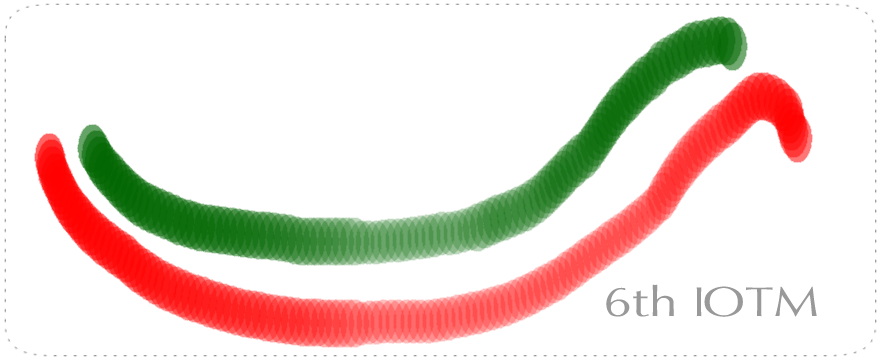Proceedings
Instructions for authors
Only papers submitted by the delegates of the 6th IOTM will be accepted. For authors registered but who could not be present at the 6th IOTM a special publication fee (approx. 100 €) can be arranged.
The submission can be done in either a template-free format or in doc/docx format. The article length must not exceed nine pages (single space, 12 point font), including abstract, figures, tables and bibliography. In either case, the paper must contain an abstract whose length does not exceed 250 words.
The deadline for the submission of 6th IOTM papers is November 15, 2013, but earlier submission is preferred.
Papers submitted for review should represent original, previously unpublished work. At the time the paper is submitted to the 6th IOTM, and for the entire review period, the paper should not be under review by any other conference or scientific journal. Notification of acceptance will be provided by e-mail. Papers will be accepted electronically at contact@tomas-pavlicek-biologie.net or by other means that could be agreed upon.
Papers should follow the following general layout:
Language
The preferred language for papers is U.K. English. However, we could consider other languages (e.g., German, French etc.) in which important taxonomic works in Oligochaeta were published in the past as well. This must be agreed upon before the manuscript submission.
Please make sure that your paper has been re-read by native speakers before you submit it.
Title page
This should include informative title, authors names and a short running title.
Author's address
This is placed at the end of the manuscript and contains: Title, initial(s) and name(s) of author(s), and address(es) for correspondence. One email address (corresponding author) will be given.
Abstract
This must be on a separate page. The abstract should not exceed 250 words and should summarize the paper in a form that is intelligible in conjunction with the title. It should not include references. The abstract should be followed by up to ten keywords additional to those in the title. The abstract should be identical or similar to the one presented in the Book of Abstracts.
Subject matter
The paper should be divided into sections under short headings. The Zoological Codes must be strictly followed. When the name of a taxon proposed as new to science is given, it must be followed by the abbreviation gen. n., sp. n. or ssp. n. The description must contain the following sections: Material, Diagnosis, Description, and Affinities. Holotype and paratypes must be clearly identified, the museum or institution in which the type material has been deposited and the catalogue numbers should be given. Names of genera and species should be printed in italic or underlined to indicate italic; do not underline suprageneric taxon names. Cite the author of species on first mention. Use SI units and the appropriate symbols. Avoid elaborate tables of original or derived data, long lists of species, etc.; if such data are absolutely essential, consider including them as appendices. Avoid footnotes.
References
In the text, give references in the following forms: Ross (1988), Ross (1988: 331) and Ross, 1983). Note that names of joint authors are connected by "&" in the English text. In other languages (see below) follow the present standards. For papers by three or more authors, use et al. throughout.
The list of references must include all publications cited in the text but only these. Prior to submission, make certain that all references in the text agree with those in the references section, and that spelling is consistent throughout. In the list of references, titles of periodicals must be given consistently in full. For books, give the title, place of publication, name of publisher if relevant. References should conform as exactly as possible to one of these three examples below, according to the type of publication cited.
Chikatunov, V., Pavlíček, T. & Nevo E. (1999): Coleoptera of "Evolution Canyon", Lower Nahal Oren, Mount Carmel, Israel. Part I. Families: Buprestidae, Carabidae, Cerambycidae, Glaphyridae, Hybosoridae, Hydrophilidae, Lucanidae, Scarabaeidae, Tenebrionidae, and Trogidae. — Sophia-Moscow: Pensoft Publishers.
Pavlíček T., Csuzdi Cs. & Nevo E. (2003): Species richness and zoogeographic affinities of earthworms in the Levant. — Pedobiologia 47: 452-457.
Chikatunov V. & Pavlíček T. (2005): Leaf beetles (Coleoptera: Chrysomelidae) of the west and southwest slopes in the Israeli part of the Hermon Mountains. In: Konstatinov A. et al. (eds.): Contributions to Systematics and Biology of Beetles. Papers celebrating the 80th birthday of Igor Konstantinovich Lopatin. — Sofia-Moscow: Pensoft Publishers.
Other citations such as papers "in press" may appear on the list, but not papers "submitted", "in review" or "in preparation". A personal communication may be cited in the text but not in the reference list. In the case of taxonomic reviews, authors are requested to include full references for taxonomic authorities.
If the originals of quoted works were published in Latin based forms (English, Latin, German, Spanish, French…) quote the title in the original language. However, for the Cyrillic and other alphabets using non-Latin letters and symbols the transliteration to English should be done in accordance with an internationally recognized scheme.
Tables
Keep these as simple as possible.
Illustrations
Figures should be numbered in the order in which they are cited in the text.
Accepted are black and white illustrations. The publication costs for colour illustrations will have to be paid entirely by the authors.

